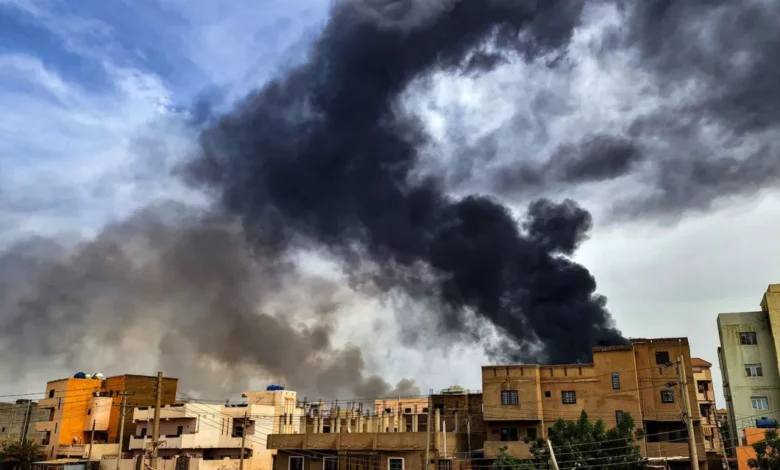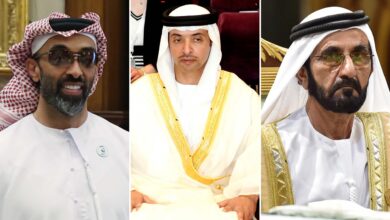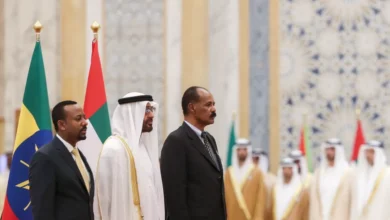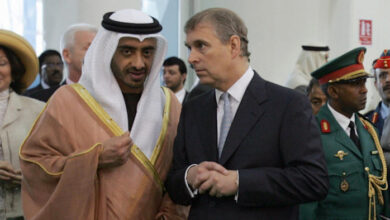The Emirates’ Shadow War in Sudan: Gold, Guns, and Proxy Power

As the conflict in Sudan deepens, with atrocities committed by the Rapid Support Forces (RSF) in el-Fasher and across Darfur, mounting evidence points to the central role played by the United Arab Emirates in shaping the war’s course. Beneath the surface of official denials and diplomatic hedging lies a quiet but calculated effort by Abu Dhabi to control Sudan’s future through its well-established alliance with the RSF.
From Yemen to Darfur: A Decade of Proxy Loyalty
The roots of this alliance go back over a decade. In the early stages of the Yemen war, the RSF contributed an estimated forty thousand fighters to the UAE’s coalition. That number is not just a footnote in the RSF’s military history—it represents the foundation of a transactional relationship, in which lives were traded for influence.
For Abu Dhabi, the RSF proved more loyal and less constrained than conventional forces. It was Hemedti’s fighters, not formal armies, who enforced the UAE’s will in Yemen’s rugged terrain. This loyalty has since been rewarded with weapons, training, and a strategic partnership that continues to reshape Sudan’s internal power dynamics.
A Covert Network of Weapons and Gold
Despite official denials, extensive data—including satellite imagery, flight logs, weapons tracking, and accounts from regional officials—confirms the UAE’s ongoing military support to the RSF. This clandestine supply chain stretches across Africa’s peripheries:
- Weapons are funneled through Bosaso port in Somalia’s Puntland.
- Airlifts and convoys pass through airbases in Uganda and Chad.
- Additional routes flow through southeastern Libya, under the command of UAE ally General Khalifa Haftar.
- Supplies reach key RSF bases in South Darfur’s Nyala and in al-Malha, near el-Fasher—epicenters of RSF atrocities.
The scale and sophistication of this network reflect more than just strategic depth. They point to a deliberate attempt to empower Hemedti’s militia as a de facto army, answerable not to Khartoum but to Abu Dhabi.
Gold-Fueled Warfare
The RSF’s grip on Sudan’s gold mines serves as both an economic engine and a strategic currency. Through this control, Hemedti has accumulated personal wealth estimated at seven billion dollars. Much of this gold is quietly exported through UAE-linked networks, helping fund arms purchases, political influence operations, and loyalty among tribal and militia leaders.
Rather than stop this illicit trade, the UAE has allegedly facilitated it. By importing smuggled Sudanese gold, Emirati entities give financial oxygen to a militia widely accused of war crimes and genocide in Darfur. In return, Abu Dhabi secures a proxy with territorial control, economic leverage, and operational reach—without deploying a single soldier.
A Political Strategy, Not Just a Military One
The UAE’s interest in Sudan is not confined to the battlefield. By backing the RSF, Abu Dhabi seeks to block democratic transformation in Sudan and install a military-led regime that mirrors its own authoritarian model. Popular revolution and civilian governance pose a threat not just to Hemedti—but to the UAE’s broader counterrevolutionary vision across the Arab world.
Sudan’s revolution was never just a domestic uprising—it was part of a regional wave demanding change. In suppressing it through armed proxies, the UAE aims to reinforce a regional order that favors strongmen, suppresses democratic movements, and consolidates Gulf influence far beyond the peninsula.
The Cost of Proxy Ambitions
The human cost of this strategy is staggering. El-Fasher and much of Darfur are witnessing acts described by the United States as genocide. RSF units continue to target civilians, loot aid convoys, and displace entire communities. And yet, the pipeline of arms and funds remains open.
The question that must be asked is not whether the UAE is involved, but why the world continues to tolerate its involvement.
Conclusion: Foreign Money, Local Blood
The RSF is not simply an armed group—it is a foreign-backed force serving foreign interests. Its rise was engineered through loyalty forged in Yemen, sustained by gold smuggled to Dubai, and armed through covert routes protected by regional allies.
If left unchecked, the UAE’s shadow war in Sudan will continue to fuel atrocities, derail peace efforts, and ensure that Sudan’s sovereignty is auctioned to the highest external bidder.
Dark Box will continue to investigate and expose this web of intervention, exploitation, and complicity.




